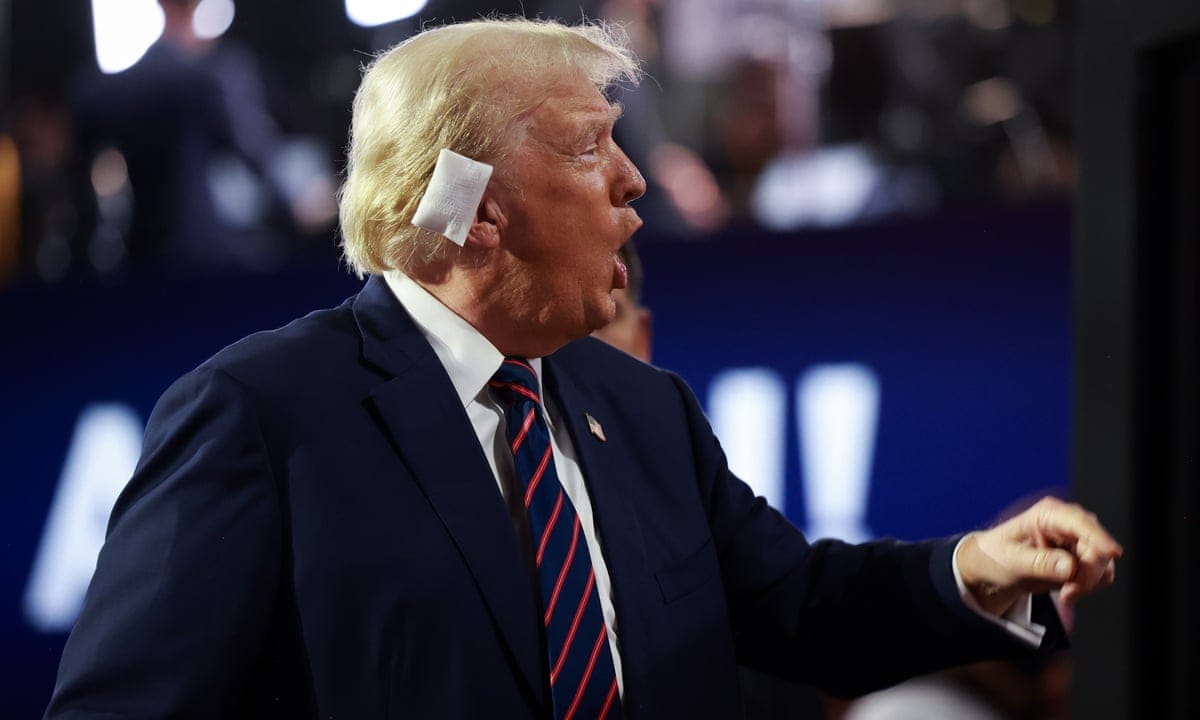The stock values of prominent chip manufacturers have decreased following remarks by a former president about Taiwan's role in global technology sectors potentially needing to fund its own security measures against China.
Semiconductor and related companies saw their shares decline the day before, influenced both by previous comments from Trump and rumors of potential stringent trade regulations involving chip exports to China under a future administration.
Taiwan Semiconductor Manufacturing (TSMC), which ranks as the largest contract chip producer worldwide, experienced a 2.4% drop in value on Thursday, after already falling by 7% the day before due to Trump's questions about America acting as Taiwan's protector while allegedly losing its own chip industry presence.
The US Nasdaq index had one of its poorest days since December 2022, decreasing by 2.8%, following an unverified report that suggested potential limitations on the trade of semiconductors to China under a hypothetical new administration.
The report mentioned the consideration of a policy known as the foreign direct product rule, which might allow the US government to regulate products incorporating even minimal American technology components. This could significantly impact companies such as Dutch chipmaker ASML and Japan's Tokyo Electron, believed by some in the US government to be providing China with advanced semiconductor technologies.
Shares of Tokyo Electron fell 8.8% on Thursday, while Japanese precision tools producer Disco Corp experienced an 8.8% decrease, and Lasertec (a chip defect inspection equipment manufacturer) saw a decline of 6.3%. ASML shares decreased by an additional 2% in early trading on Thursday after the previous day's 11% fall. US semiconductor maker Nvidia also suffered losses, with a drop of 6% on Wednesday.
Former President Trump's remarks hinted that military support for Taiwan might not be assured if he were to return as president. He expressed uncertainty about the security situation in Taiwan, compared the US role to an insurance company, and suggested that Taipei should compensate America for its protection services. Additionally, he mentioned Taiwan does not provide any significant benefits to the United States.
Taiwan produces over 90% of global advanced chips through TSMC, supplying major companies like Apple and Nvidia. The country's prime minister expressed gratitude towards US support while emphasizing Taiwan's efforts in enhancing its defense capabilities.
Read next

Ryanair plane had only six minutes of fuel upon Manchester landing, records show
Flight Narrowly Avoids Disaster After Storm Diversion
An inquiry has been launched after a Ryanair flight, struggling against severe winds during storm Amy last week, landed at Manchester Airport with only six minutes’ worth of fuel remaining.
The aircraft had been transporting passengers from Pisa, Italy, to Prestwick, Scotland, on

"Qantas customer data for 5 million exposed as hackers release info post-ransom deadline"
Hackers Leak Personal Data of 5 Million Qantas Customers on Dark Web
A cybercriminal group has released personal records of 5 million Qantas customers on the dark web after the airline did not meet their ransom demand.
The breach is part of a larger global incident affecting over 40 companies,

Investors flee record-high UK stocks as EU set to hike steel tariffs
Investors Withdraw Record Sums from Equity Funds Amid High Market Valuations
Data reveals that investors in the UK have withdrawn an unprecedented amount of money from equity funds over the past three months, driven by concerns over soaring stock market valuations.
According to the latest figures from Calastone, the largest

